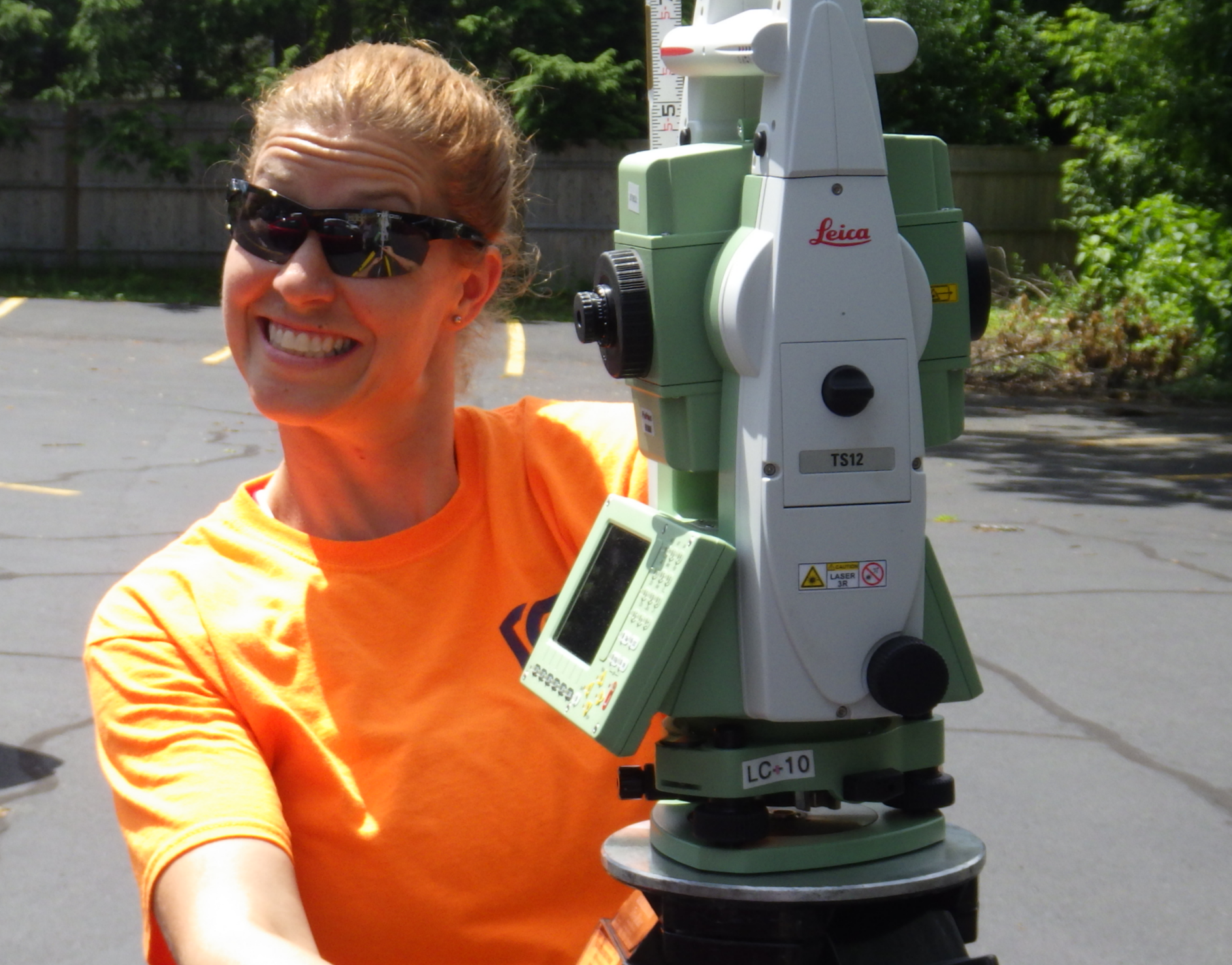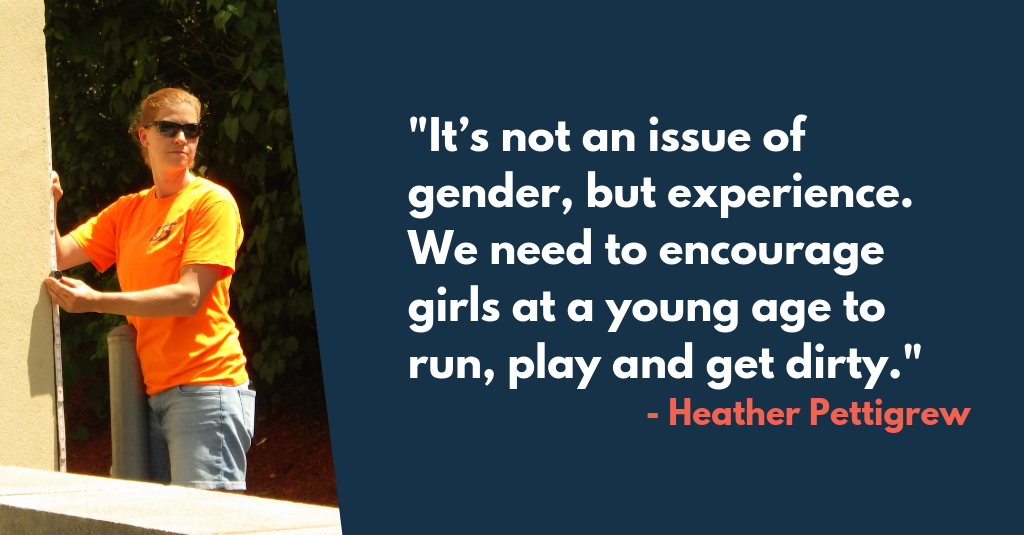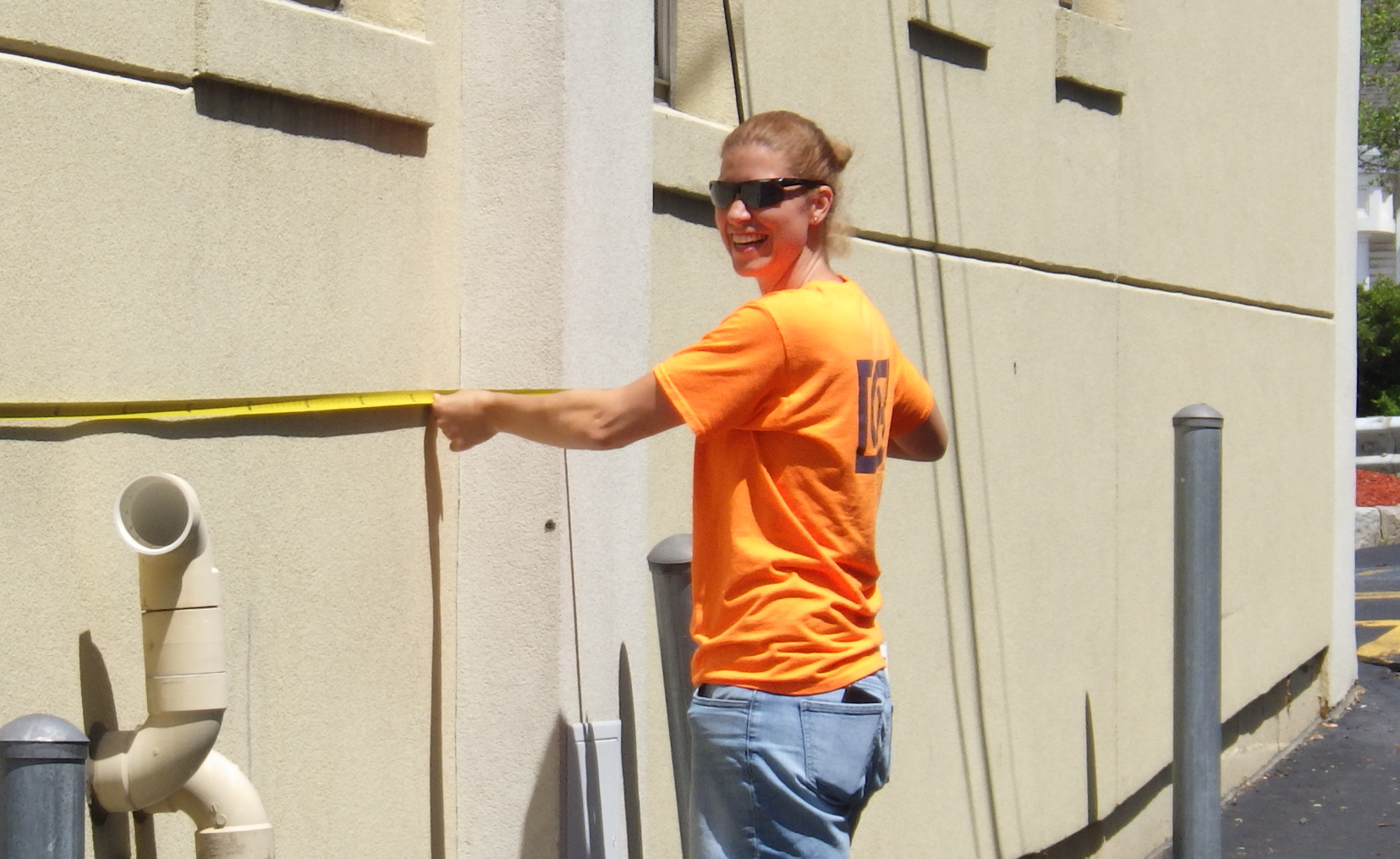Meet Our Crew: Staff Surveyor Heather Pettigrew
Meet Our Crew: Staff Surveyor Heather Pettigrew
Heather Pettigrew is not your traditional surveyor. Heather has been a vital member of the DGT team for nearly four years, supporting our efforts in the field and in the office as a staff surveyor.
She’s also a woman in a field that is dominated by men – according to the U.S. Census, the most recent numbers show that women make up just 13.2% of the workforce in surveying, mapping, photogrammetry and civil engineering. Heather recently sat down with us to talk about her experiences as a woman in the field.
What drew you to the surveying field?
Before surveying was on my radar, I received my first bachelor’s in business management and technology from Rhode Island College. After graduation I worked as a project liaison for an electronic/fiber-optic manufacturing company for a year. One day while cleaning out my car, I found a course catalog from my local community college (Community College of Rhode Island) that said they were starting up a new surveying program.
I didn’t know what was involved in a job in surveying, so I talked to my dad about it. He said, “I think you would like surveying, it’s outdoor work,” and I do love the outdoors. I signed up that same day and started classes the next morning. I obtained my associate’s degree at CCRI and then finished my Bachelor of Science degree in surveying engineering technology at the University of Maine at Orono.
When you started those classes, was there a sense that this was a calling for you?
Not right away. Every year I realized that I need to keep learning. There are so many doors that are opening up because of surveying. It is turning into a stimulating career for me, and I recently sent in my application to take my Professional Land Surveyor exams to further my career.
What are you most proud of in your work to date?
I enjoy working directly with our clients, hearing what they need and working with them and my co-workers to come up with the best solution for that project.
Although the numbers are rising, women make up a small percentage of the surveying workforce. Why do you think that is?
In our society, we have some gender-specific roles, but the gap is definitely closing. My advice would be, if you like the job description of any job – no matter if it’s a male-dominated or a woman-dominated profession – then go for it. If you like it, you can do it. Don’t let a gender-specific job derail you from following your dreams.
There has been a push for girls to get involved in STEM (Science, Technology, Engineering and Mathematics), but do you see more girls and young women looking at surveying and engineering?
Because surveying is such a small part of STEM, I think it still gets a small amount of exposure. As we continue getting the word out that women can be, and are, strong mentally and physically, I think that will change over time.
I was part of that statistic. I didn’t know much about surveying until I talked with my dad and got exposed to it. There are so many jobs men and women are not exposed to in high school. We as surveyors need to do our due diligence in getting the word out and educating the future surveyors early, both men and women.
What barriers do women face in surveying?
Society and sterotypes are two barriers that come to mind. For example, if a woman and a man are each given a shovel with no prior experience and asked to dig a hole, neither would be able to complete the task without some instruction.
It’s not an issue of gender, but experience. We need to encourage girls at a young age to run, play and get dirty.
Surveying can be a physically demanding job. Have you ever felt like you had to prove you were capable of handling it?
Since I was a child, I enjoyed sports, yard work, playing outside and being in nature. I was a multi-sport athlete in high school and college, and I have excelled in physically demanding jobs and activities since I was young. I have not felt that I needed to prove myself in this area.
What I felt I had to prove is that when I go to a work site as the field chief with a male co-worker – even with a newbie – the client, construction superintendent and/or the person walking down the street, often assumes that the male co-worker is the field chief. Sometimes when I go on the job site and I have a newbie that I’m training, they’ll ask him a question, and he’s like, “uh, you’ve got to talk to Heather.” I understand that it’s not that they thought less of me or meant any disrespect; they’re just responding to the gender stereotypes.
How can the surveying field be more inviting and attractive to women?
If an individual can believe that whatever they want to do, they can do, then just go for it and become a surveyor. I feel like no job is really a difficult job, it’s just learning your A-B-C’s. Everything takes time, as long as you put that due diligence into it. So to a young woman going into a surveying or engineering job, if you love it, if you want to learn it, go for it. Keep pushing forward. If you’re having a hard time with the physical aspect, well, if you bang on enough grade stakes, you’re going to build some muscles.
Where do you see the surveying field headed in the next decade?
Boundary is where surveying started, and I believe we’ll always need boundary surveying. But it’s also expanding. Subsurface utility mapping we talk about on our website, 3D scanning and drones are super accurate and super cool. Using drones, we can now complete a 20-acre lot topography in a day or two, instead of taking a month in the field. The technology is pretty remarkable. It’s definitely going to be more technology-based, but the skill of the surveyor still plays a fundamental role in translating the data for each project.
Do you think of yourself as a role model?
I don’t necessarily see myself as a role model but I do understand that our words and actions impact people every day. I aspire to make a positive impact on everyone I encounter.



